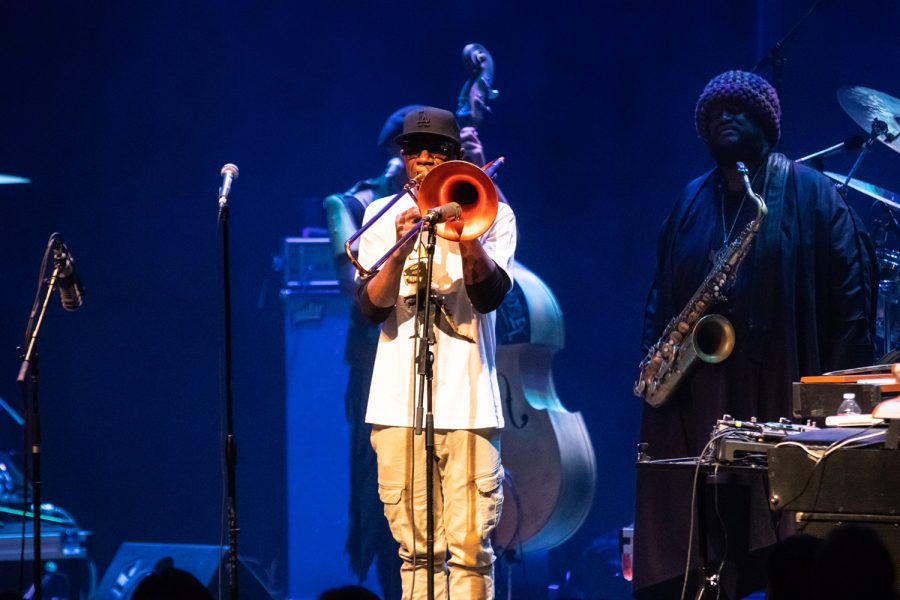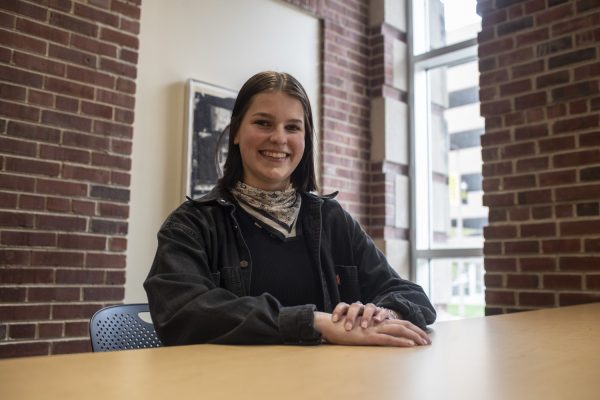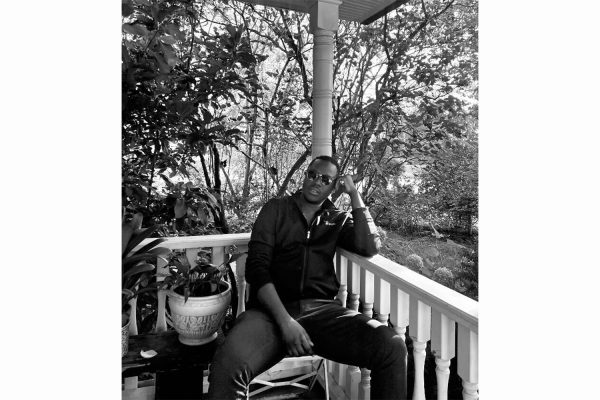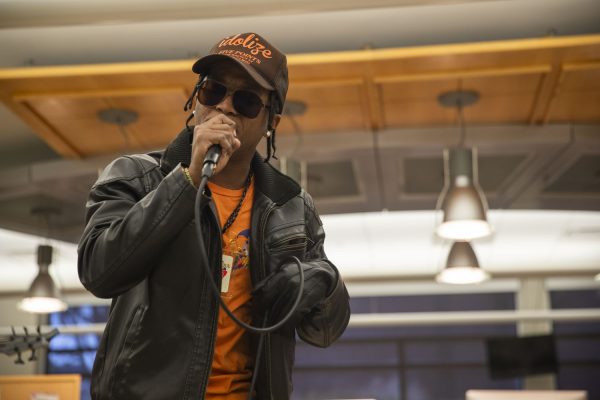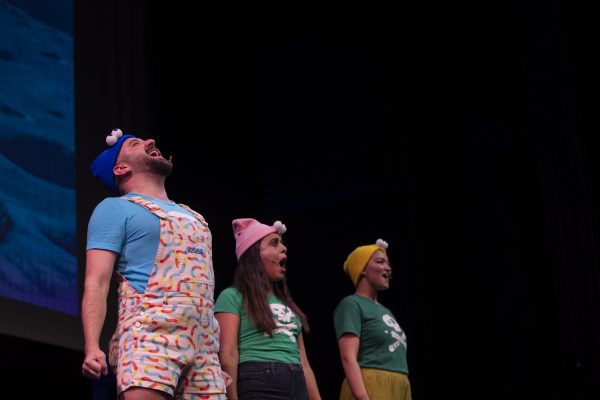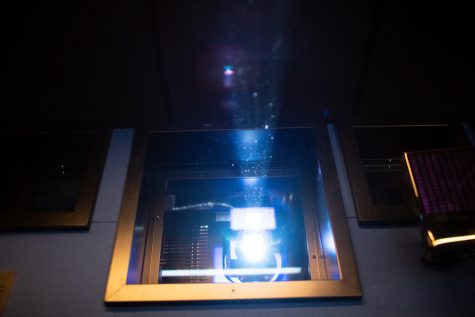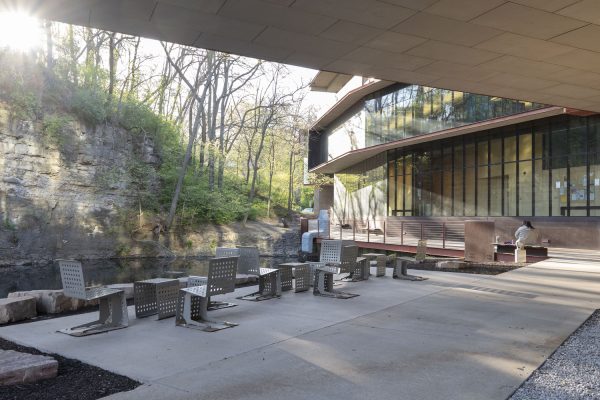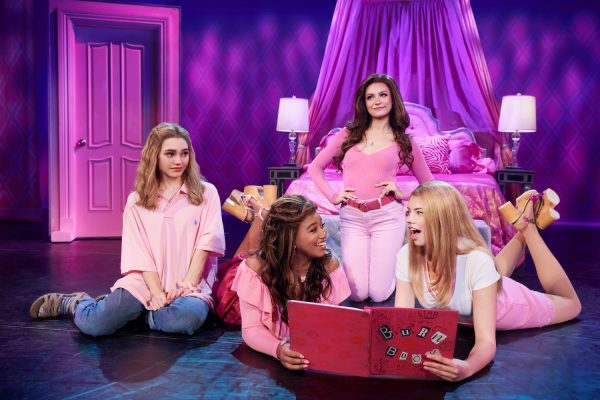Review: Kamasi Washington, A Renaissance Man of Music
Kamasi Washington filled the Englert theater last night with a wave of lush sounds.
Kamasi Washington performs at The Englert Theatre on October 31, 2018. The performance was part of Kamasi’s “Heaven and Earth” tour. (Megan Nagorzanski/The Daily Iowan)
November 1, 2018
On Halloween night, Kamasi Washington and his band guide Iowa City through a stylistically rich musical journey at The Englert Theatre. The Los Angeles-based jazz saxophonist, bandleader, and composer made his Iowa City debut on the “Heaven & Earth” tour with Victory Boyd as opening support. Given the band’s enthralling performance, there’s no doubt that those in attendance are already eagerly awaiting his return.
Washington’s music career dates back to the late nineties. Throughout his career, the musician has collaborated and performed alongside a diverse and celebrated array of artists, including jazz-fusion iconoclasts Herbie Hancock and Wayne Shorter, hip-hop legends Lauryn Hill and Nas, as well as recent jazz/funk innovators Thundercat and Flying Lotus. Washington gained initial recognition among underground jazz circles in the 2000s through a string of self-released albums, but recently, he has been embraced by a more mainstream audience through 2015’s The Epic, 2017’s Harmony of Difference, and 2018’s Heaven and Earth.
The show began at eight o’clock with a lovely set by opener Victory Boyd and her accompaniment. The artist sang songs of unrequited love, resoluteness in times of struggle, and the black experience. The three-piece, with their sweetly-toned and slower-paced tunes, were the perfect primer for Washington and his band; the calm before the storm.
The main act sauntered onstage around nine-thirty, dressed festively in accordance with the holiday; a few band members wore Hannibal masks, panda heads, and furry yeti helmets, but Kamasi appeared in his usual robes at the front of the stage. Washington welcomed the audience and invited them to join him and his band for their journey soon to be embarked upon.
The band immediately dove into their enticingly groovy jazz performance. Song-after-song, each band member impressively showcased their unique contributions to the mix, sharing the spotlight equally with their bandleader; trombonist Ryan Porter fired pulsating, morse-code melodies from his horn; vocalist Patrice Quinn serenaded the audience with her smooth and steady spiritual words; keyboardist Brandon Coleman synthesized a seemingly endless series of squelches and other-worldly tones on the keys.
Other members in the group brought forth sensational reactions from the crowd. While pockets of dancers popped up in the crowd prior to his performance, upright bassist Miles Mosley mobilized the audience into a mass exodus from their seats toward the stage with his track “Abraham”; the moment the band joined in with Mosley, the crowd flocked toward the funky rhythms flying from Miles and the group, grooving in unison throughout the rest of the show. The two drummers onstage, Tony Austin and Ronald Bruner, had the stage to themselves at one point, bantering back and forth via tom, hi-hat, and snare hits. All-the while through each band member’s showcase, everyone else onstage watched and smiled in support of their talents.
But it was Kamasi Washington tying everything together last night. Wielding his tenor saxophone, the musician effortlessly improvised alongside his bandmates, expressing sentiments that only his dizzying series of melodic ascents and descents are capable of rendering. Washington consistently strived for transcendence through his horn, and most-often times reached it, carrying the audience with him through spiritual and spatial realms unknown.
In between songs, Washington discussed the touring lifestyle and its impact on him. He emphasized the importance of difference in the world, and the harmonious culture that results from diversity.
“Diversity is not something to be tolerated,” Washington urged, “It’s something to be celebrated.”
Given increasing divides in American society, Washington’s message is needed in this country now more than ever. But last night at The Englert at least, everyone in attendance participated in a harmony of difference, unified through their own unique distinctions and the music of Kamasi Washington and his band.



